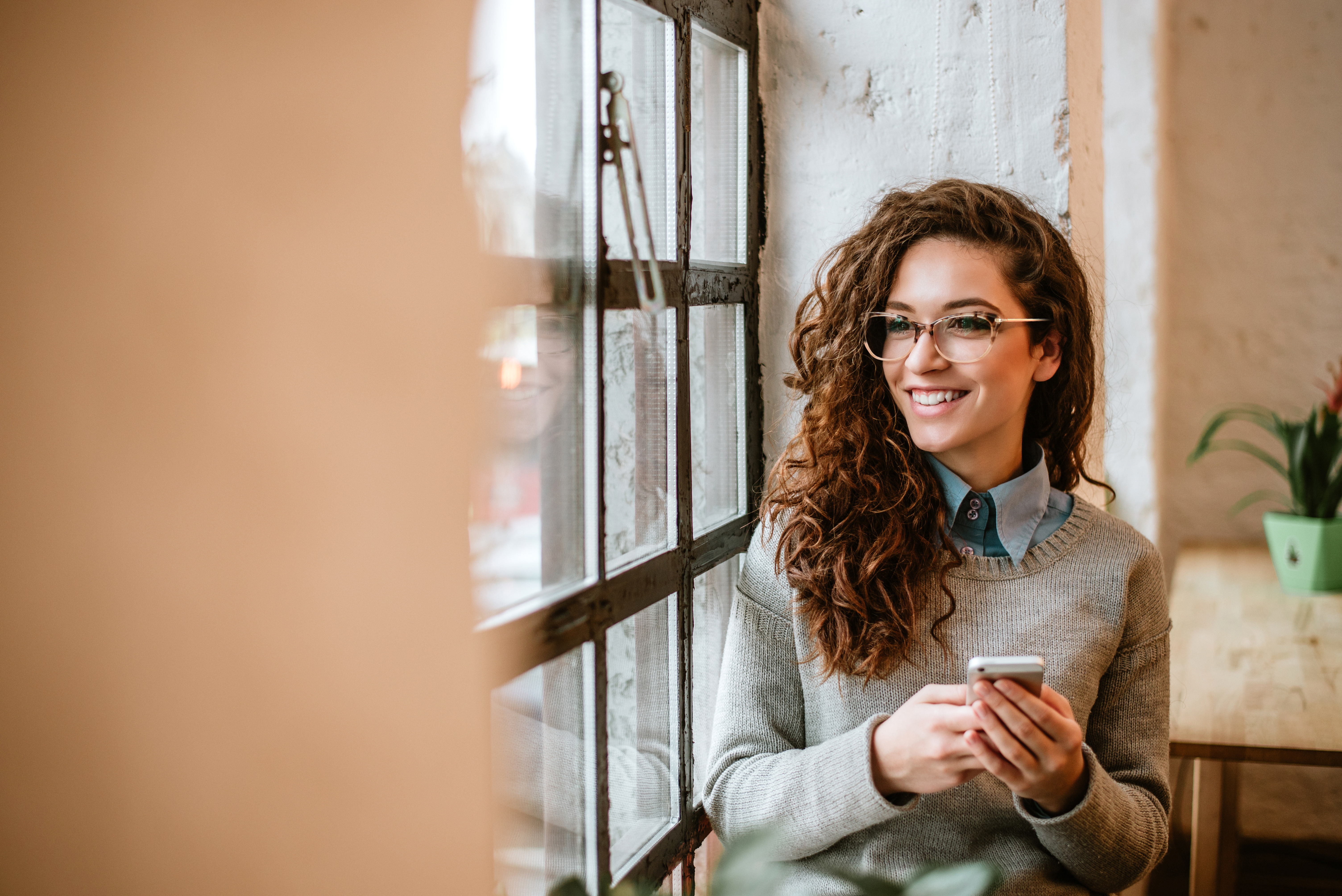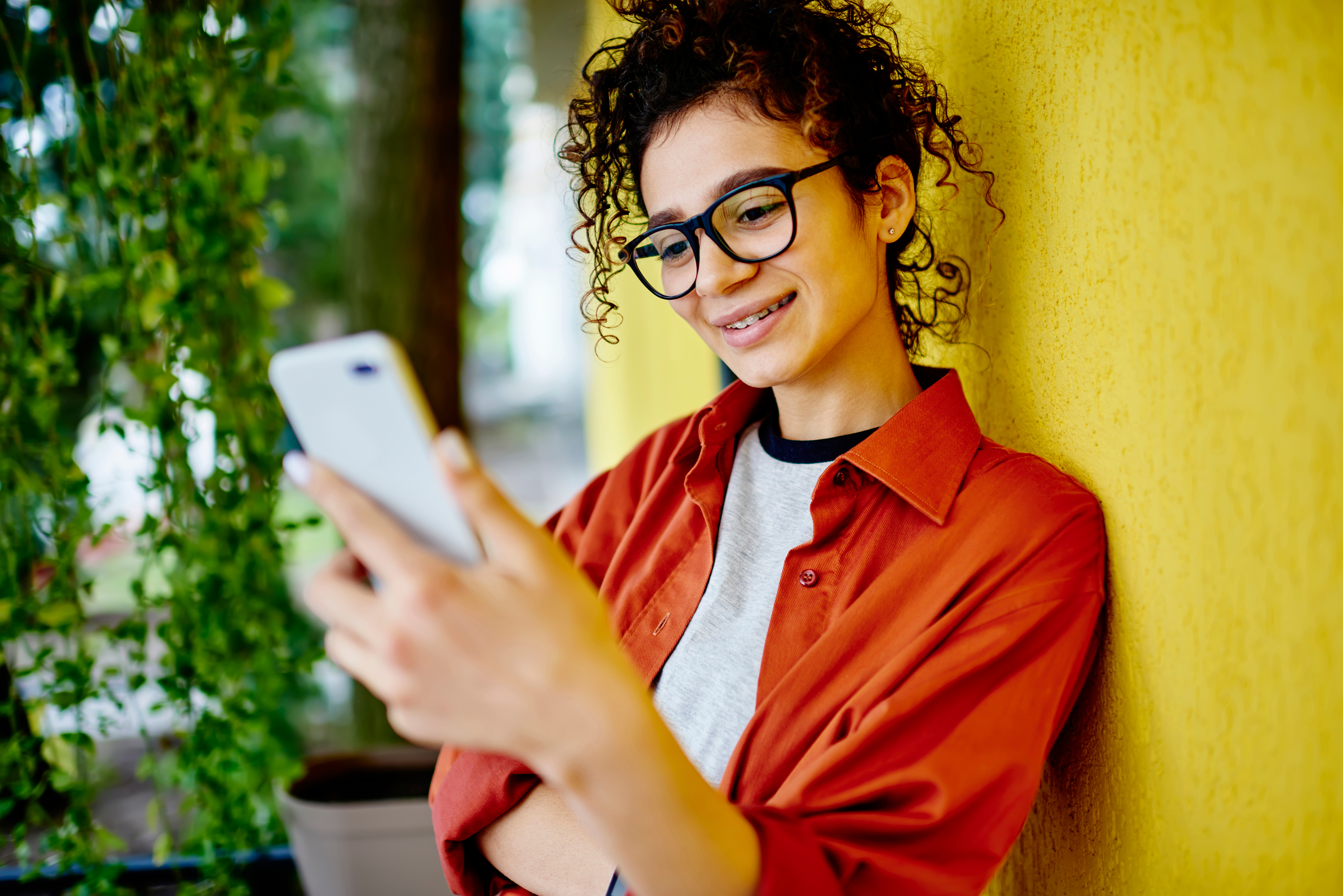Many of us spend a major portion of our day in front of a screen. Even those who do not have a screen-facing desk job still spend a reasonable amount of time in front of screens, be it their TVs or laptops.
The dangers of staring at screens arise from the blue light they emit. Blue light is a short wavelength, high-energy radiation that falls in the visible spectrum of light. And one of the most popular ways to protect your eyes from this harmful blue light is to use blue light glasses or contact lenses.
However, there is also a lot of debate on their efficacy. So, do blue light glasses really work? Let's find out.
What Are Blue Light Glasses?
All of your electronic devices, including laptops, computers, tablets, and mobile screens, emit blue light. This light can take a significant toll on your health and mind, causing headaches, eye strain, and insomnia.
But What Is Blue Light?
Visible light is made up of seven colors of the rainbow - violet, indigo, blue, green, yellow, orange, and red (VIBGYOR). Of all these, violet has the shortest wavelength, around 380 nm, while red has the longest wavelength at around 700 nm.
The colors of light are arranged in ascending order of wavelength, and the range of the visible light spectrum is between 380 nm and 700 nm.
And on this spectrum, the shorter wavelengths have higher energy and longer wavelengths have less energy. Thus, shorter wavelengths with high energy are damaging to the retina.
Now, you may wonder that since violet light has a shorter wavelength than blue, violet light must be more dangerous.
Well, violet is definitely more damaging than blue light. However, the screens that we face do not emit violet light; they emit blue light.

Why Is Blue Light So Bad?
Blue light sabotages your sleep by damaging your biological clock, or the circadian rhythm. Blue light exposure during the day suppresses the production of melatonin, the hormone that regulates sleep.
So, when a person exposes himself to blue light during the night, it causes them to be more alert. And this makes falling asleep that much harder.
Hence, exposure to screens must be avoided at night at all costs.
However, using mobile phones has become second nature to us, so avoiding looking at our screens can seem next to impossible.
Enter blue light glasses.
But what do blue light glasses do? Do they really work? Or is it just another gimmick that companies are using to fool the customers and sell their products?
How Do Blue Light Glasses Work?
Research in this field has been sparse, and the studies that have been conducted on this topic have shown contrasting results. So, how exactly do blue light glasses work? Well, there's no precise answer to that.
There have been many claims about the amazing advantages of using blue light glasses, mostly by lens companies. Manufacturers have argued that these glasses block blue light and help you achieve better quality sleep, reduce eye strain, and cure your headaches.
But, what does the research say?

Studies on Blue Light Technology
The American Academy of Ophthalmology (AAO) unequivocally stated that there is no credible scientific evidence proving white light and light from digital screens are harmful. So, the AAO completely discredits the use of blue light glasses.
A 2017 review also supports this claim. According to this study, there is not enough evidence to support that blue light glasses are indeed beneficial.
Hence, all that talk about reducing eye strain and headache may seem fruitless.
However, there have been many other studies that have shown contrasting results. Here are a few studies that are worth considering:
● A 2017 study found that, among the 80 computer users who participated in the research, one-third found blue light lenses to be beneficial. After a month of using blue light lenses, the subjects claimed that the glasses improved their vision and reduced the glare emitted from the screens.
● A 2017 study found that the use of blue light glasses helped to increase sleep quality and duration.
● A 2019 study found that blue-light-blocking shades had a protective effect against phototoxicity on human ocular cells.
● A 2019 study found that blue light therapy glasses helped treat sleep disturbances in patients suffering from Parkinson's disease.
● A 2019 study found that blocking blue light in the evening, three hours before sleeping, helped athletes sleep better.
● A 2020 study found that blue light-blocking glasses helped patients suffering from mania to sleep better after only seven days of wearing them.
All these studies stand in stark contrast to what the AAO suggested. These studies prove that blue light is, in fact, very detrimental to your eyes and that blue light glasses are indeed helpful in a number of different ways. It can not only help improve one's quality of sleep and address insomnia but also reduce eye strain.
Hence, blue light glasses can be very effective in helping a person sleep and reducing instances of headaches and migraines.

Tips To Protect Your Eyes
If you are suffering from chronic dry eyes, headaches, and eye strains, you may be dealing with digital eye strain. This is also known as photophobia, an abnormal sensitivity to light.
In such cases, blue light glasses may not be of much help. Here are a few things that you can do along with using blue light glasses or lenses to relieve the symptoms:
● Avoid using any devices 2-3 hours before going to bed. If it is important to use screens, use them in dark or night mode.
● Sit at arm's length from the computer screen.
● Follow the 20-20-20 rule. Take a break every 20 minutes, look away from the screen, and look around at any object 20 feet away for at least 20 seconds.
● Wear light-sensitive glasses.
● Use eye drops to lubricate dry eyes.
Conclusion
If you think blue light is the culprit behind your eye strain and headache, using blue light glasses might just be the solution for you. It can help reduce the strain while also improving your overall eye health. Use them in tandem with the above-mentioned tips to protect your eyes and maintain your eye health.










